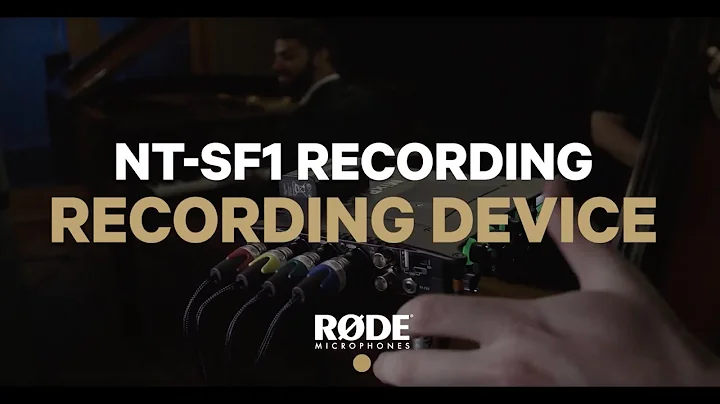'Device or resource busy' error thrown when trying to record audio using arecord
The ipc_key is used for communication between the programs that share the same device. This means that you have to use different values for different hardware devices, but that all virtual devices that access the same hardware device (i.e., the same slave usb_audio_1) must use the same ID.
Related videos on Youtube
skrowten_hermit
Updated on September 18, 2022Comments
-
 skrowten_hermit over 1 year
skrowten_hermit over 1 yearI'm trying to record audio that is being played on separate channels using
arecord. I do this by executing the following command in separate threads in a python script:arecord -D plug:"+str(in_id)+" -c 1 -d "+str(duration)+" -f S16_LE -r "+str(rate)+" "+rec_filenamewhere
in_idis the input channel variable that I pass to each of the threads. But then, the following error is thrown:ALSA lib pcm_dsnoop.c:606:(snd_pcm_dsnoop_open) unable to open slave arecord: main:722: audio open error: Device or resource busyWhen I run
lsof /dev/snd/pcm*right before I start recording usingarecordin my record function in the program, I see the following:COMMAND PID USER FD TYPE DEVICE SIZE/OFF NODE NAME aplay 12236 user4 mem CHR 116,3 493 /dev/snd/pcmC1D0p aplay 12236 user4 4u CHR 116,3 0t0 493 /dev/snd/pcmC1D0pMy device definition for input channels in
.asoundrcis as follows:pcm.!default { type plug slave { pcm "hw:1,0" } } ctl.!default { type hw card 1 } pcm_slave.usb_audio_1 { pcm "hw:1,0" channels 8 rate 44100 buffer_size 4096 period_size 1024 } pcm.outch<num> { type dshare ipc_key <id> slave usb_audio_1 bindings [ <ch_num> ] hint.description "USB output/playback channel <num> (from output port <num>)" } pcm.inch<num> { type dsnoop ipc_key <id> slave usb_audio_1 bindings [ <ch_num> ] hint.description "USB input/capture channel <num> (from input port <num>)" }where
<num>takes all values between 1 and 8 and<ch_num>takes all values between 0 and 7.Since, the error clearly says there is a definite problem with
dsnoop, does that mean that it is not meant for simultaneous/multi-channel recording? I mean is there a conflict betweendsnoopanddshareor ifdsnoopcan record/capture from only one channel at a time? Is there another way I can achieve this?-
 Admin about 7 yearsDoes a single such
Admin about 7 yearsDoes a single sucharecordcall work on the command line? -
 Admin about 7 yearsYes, single
Admin about 7 yearsYes, singlearecordcall works fine. I can combinearecordwithaplayon pipes as well. -
 Admin about 7 yearsDoes the first
Admin about 7 yearsDoes the firstarecordcall from Python work? -
 Admin about 7 yearsAfter the execution of the program,
Admin about 7 yearsAfter the execution of the program,lsof /dev/snd/pcm*returns nothing. -
 Admin about 7 yearsTo be sure, run it from your Python program, just before
Admin about 7 yearsTo be sure, run it from your Python program, just beforearecord. -
 Admin about 7 yearsI have updated my post with the result of
Admin about 7 yearsI have updated my post with the result oflsof /dev/snd/pcm*during the execution of the program. -
 Admin about 7 yearsAll the output channels are defined with ipc_key values as 1111,1112,1113...1118 and output channels are defined with ipc_key value as 2111,2112,2113...2118.
Admin about 7 yearsAll the output channels are defined with ipc_key values as 1111,1112,1113...1118 and output channels are defined with ipc_key value as 2111,2112,2113...2118.
-
-
 skrowten_hermit about 7 yearsNot even in my wildest dreams I had suspected
skrowten_hermit about 7 yearsNot even in my wildest dreams I had suspectedipc_keyto be the cause of this! Obviously, my understanding was flawed. Thanks a lot @CL. for clearing it. Just out of curiosity, in my case, can I put theipc_keyin some other container definition block in order to avoid such mistakes. I mean it is only logical to have a master block in the hierarchy with a common field likeipc_keyright?









